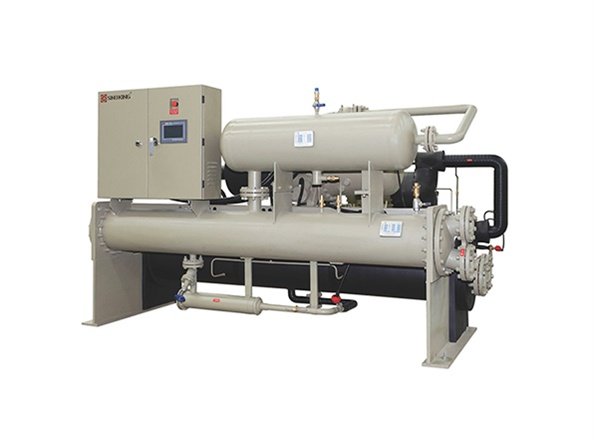Water-Cooled Explosion-Proof Inverter Chiller Units: Reliable Cooling Solutions for a Safer Tomorrow
In today's rapidly evolving industrial landscape, the demand for efficient and safe cooling systems is on the rise. Water-cooled explosion-proof inverter chiller units have emerged as a crucial solution, offering a combination of advanced technology and enhanced safety features. The importance of reliable cooling cannot be overstated. In various industries such as manufacturing, pharmaceuticals, and data centers, maintaining optimal temperatures is essential for the smooth operation of processes and the protection of sensitive equipment. Water-cooled chiller units play a vital role in providing consistent and efficient cooling, ensuring that operations run smoothly and without interruption.

One of the key features of water-cooled explosion-proof inverter chiller units is their explosion-proof design. In environments where there is a risk of explosions due to flammable gases, vapors, or dust, these chiller units offer an added layer of safety. The explosion-proof construction is designed to prevent ignition sources from coming into contact with potentially explosive substances, reducing the risk of accidents and ensuring the safety of personnel and property. Inverter technology is another significant advantage of these chiller units. Inverter-driven compressors can adjust their speed and output according to the cooling load, resulting in significant energy savings. This not only reduces operating costs but also contributes to a more sustainable and environmentally friendly operation. By optimizing the compressor's performance, inverter chiller units can achieve higher efficiency and lower energy consumption compared to traditional fixed-speed models. Water-cooled systems offer several benefits over air-cooled alternatives. Water has a higher heat transfer coefficient than air, allowing for more efficient cooling. Additionally, water-cooled chiller units can operate more quietly and with less vibration, providing a more comfortable working environment. They are also less affected by ambient temperature fluctuations, ensuring stable cooling performance even in extreme weather conditions. The reliability and durability of water-cooled explosion-proof inverter chiller units are also noteworthy. These units are built to withstand harsh industrial environments and are designed with high-quality components and advanced engineering. They undergo rigorous testing and quality control procedures to ensure long-term performance and minimal downtime. With proper maintenance, these chiller units can provide years of reliable service, reducing the need for frequent replacements and saving on maintenance costs. In today's era of increasing environmental awareness, water-cooled explosion-proof inverter chiller units also offer eco-friendly features. Many models are designed to use environmentally friendly refrigerants that have a lower impact on the ozone layer and global warming. Additionally, the energy-efficient operation of these units helps reduce carbon emissions and contribute to a greener future. As industries continue to grow and evolve, the need for advanced cooling solutions that combine safety, efficiency, and reliability is becoming more critical. Water-cooled explosion-proof inverter chiller units meet these requirements and offer a comprehensive cooling solution for a wide range of applications. Whether it's in a chemical plant, a pharmaceutical facility, or a data center, these chiller units can provide the cooling performance and safety features needed to ensure smooth operations and protect valuable assets. In conclusion, water-cooled explosion-proof inverter chiller units are a reliable and efficient cooling solution for today's demanding industrial environments. With their explosion-proof design, inverter technology, water-cooled efficiency, and durability, these units offer a combination of safety and performance that is essential for various industries. As the demand for cooling solutions continues to rise, these chiller units are poised to play an important role in ensuring the smooth operation and safety of industrial processes.
 Environmental yearning for sew
Environmental yearning for sew
 Improvement of sewage treatmen
Improvement of sewage treatmen
 Environmental protection refor
Environmental protection refor
 Environmental protection techn
Environmental protection techn


